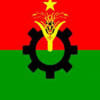Digital Security Bill: JS body submits report, ignores concerns of journalists

A parliamentary body yesterday submitted its report on the much-debated Digital Security Bill, ignoring concerns of journalists and media owners over some of its sections.
In the report, the parliamentary standing committee on posts, telecommunications and information technology ministry, however, recommended some minor changes to the bill. One of them is to include the provisions of the Right to Information Act, 2009.
The JS body also recommended renaming the offence of “computer or digital spying” “violating state secrecy” under section 32 and incorporating Official Secrets Act, 1923.
At a meeting on Sunday, Sampadak Parishad, a platform of the editors of the country's dailies, expressed its surprise, disappointment and shock at the committee's final report on the proposed Digital Security Act-2018.
In a statement, the Council said they were “forced to reject the report” as it suggested no fundamental changes to sections 8, 21, 25, 28, 29, 31, 32, and 43 of the draft act that poses serious threats to freedom of expression and media operation.
The Parishad also called upon the authorities not to pass the draft act saying it would gravely affect journalistic freedom and seriously curtail democracy in Bangladesh.
The platform welcomed the inclusion of the RTI but expressed concern at the insertion of the colonial era Official Secrets Act saying that this was a clear contradiction with the RTI.
Talking to The Daily Star yesterday, Transparency International Bangladesh (TIB) Executive Director Dr Iftekharuzzaman also said the inclusion of the Official Secrets Act “clearly contradicts” the RTI act.
He also expressed disappointment over the finalisation of the report without amending some of the sections that curb freedom of speech and independent journalism and also without considering most of the recommendations from the stakeholders.
“A sense of insecurity will be created among people if the Digital Security Bill is passed without bringing necessary amendments,” he said.
While submitting the report in parliament, Imran Ahmed, chief of the parliamentary body, suggested inclusion of a definition of the “Spirit of the Liberation War” in section 21.
The definition of the Spirit of the Liberation War as proposed by the Jatiya Sangshad committee is: “The high ideals of nationalism, socialism, democracy and secularism, which inspired our heroic people to dedicate themselves to, and our brave martyrs to sacrifice their lives in, the national liberation struggle.”
The parliamentary committee has ignored journalists' concerns on sections 8, 28, 29 and 31 that deal with hurting religious values, disrupting public order, dishing out defaming information and causing law and order deterioration through publishing anything in website or electronic form.
However, Imran, in his written statement, attached to the report, claimed that several changes were made to the bill incorporating the statements of “the ministers and invited guests to make the bill more effective and timely”.
“I hope the bill will play a great role in forming digital Bangladesh if parliament passes it after bringing the amendments,” he said.
On July 4, the committee at a meeting with Editors' Council, Bangladesh Federal Union of Journalists (BFUJ) and Association of Television Channel Owners (ATCO) placed an 11-point change to the proposed Digital Security Act for their consideration.
Representatives of the three organisations told the committee that they will share their opinions on the changes later, following discussions in respective forums.
The committee set July 16 for further discussion with the organisations on the bill. But the meeting was postponed and no fresh date was announced afterwards.
Earlier on May 22, the committee had invited presidents and general secretaries of the Editors' Council and BFUJ and president and senior vice president of ATCO to a meeting to hear their views.
At the meeting, the three organisations voiced concerns over sections 8, 21, 25, 28, 29, 31, 32, and 43, saying these would greatly hamper the freedom of speech and independent journalism.
Law Minister Anisul Huq and Posts, Telecommunications and IT Minister Mustafa Jabbar earlier on several occasions assured journalists of taking measures to mitigate their concerns.
On April 9, the Digital Security Bill, 2018 was placed in parliament amid growing concerns among journalists and rights activists that freedom of the press and expression would be seriously jeopardised if the bill was passed as it was.
The parliamentary committee in its final report yesterday recommended some minor changes to sections 21, 25, 32 and 43, among others.
THE CHANGES
The committee recommended replacing the title of section 32 -- “crime and punishment for computer and digital spying” -- with “crime and punishment for violating state secrecy”.
As per the recommendation, section 32 says if a person commits any crime or assists anyone in committing crimes under Official Secrets Act, 1923 through computer, digital device, computer network, digital network or any other electronic medium, s/he may face a maximum 14 years in jail or a fine of Tk 25 lakh or both.
The committee suggested reducing the jail term and the amount of fine under sections 18, 21 and 28 that deal with illegal entry to computer and digital device, propaganda against the Liberation War and hurting religious sentiment.
Regarding the concerns of journalists about section 43 that says a police official can search or arrest anyone without any warrant issued by a court, the committee suggested that police carry out the job following the proposed digital security agency director general's approval.
However, the committee didn't address journalists' concern regarding section 28 that says a person may face up to five years' imprisonment or Tk 10 lakh in fine or both if he or she is found to have deliberately published or broadcast something in a website or in electronic form or gets it done to hurt one's religious sentiment and values.
The committee also didn't say anything about sections 29 and 31.
Section 29 says a person may face up to three years in jail or a fine of Tk 5 lakh or both if he or she commits the offences stipulated in section 499 of the Penal Code through a website or in electronic form.
Section 31 says a person may face up to seven years in prison or Tk 5 lakh in fine or both if he or she is found to have deliberately published or broadcast something on a website or in electronic form which can spread hatred and create enmity among different groups and communities, and can cause deterioration in law and order.

 For all latest news, follow The Daily Star's Google News channel.
For all latest news, follow The Daily Star's Google News channel. 








Comments